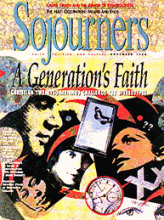The majority of Generation X Latinos perceive that our faith sects (both Catholic and Protestant) have little to say about the issues that affect us most: technology-induced future shock, a national debt as frightening as a velociraptor, AIDS, and (perhaps most important) race and identity. What better way to explain the phenomenon of countless young Latinos leavingin their own words, escapingour religious institutions?
In San Antonio, its reported that 3 percent of Catholic youth attend Mass every Sunday. Chicago Protestant pastors describe a local example of a national phenomenon: young people raised in Latino congregations leaving for Anglo-dominated superchurches or just dropping the faith altogether. In Los Angeles, Christian leaders report youth active in lowrider car and bicycle clubs, Quebradita and rap crews, tagbanging and gangbangingbut not in church.
This is tragic, because my generation needs to hear a biblical message: that God considers all that we areincluding our race, culture, gender, economic statusto be valuable. But since my generation does not access the resources of the Bible-believing church, we search for identity and racial validation elsewhere.
Will the new, Latino-conscious media such as Foxs Culture Clash, Tejano music, banda and hip hop culture, and the growing list of Madison Avenue-published Latino authors do it? Will pride in our history, in being Chicano, Puerto Rican, Tejano, or Salvadoran do it? Will our hard-fought-for economic and political power do it? I think, instinctively, we sense that these and other trappings of a newer, friendlier U.S. Latino future wont do it.
Read the Full Article

